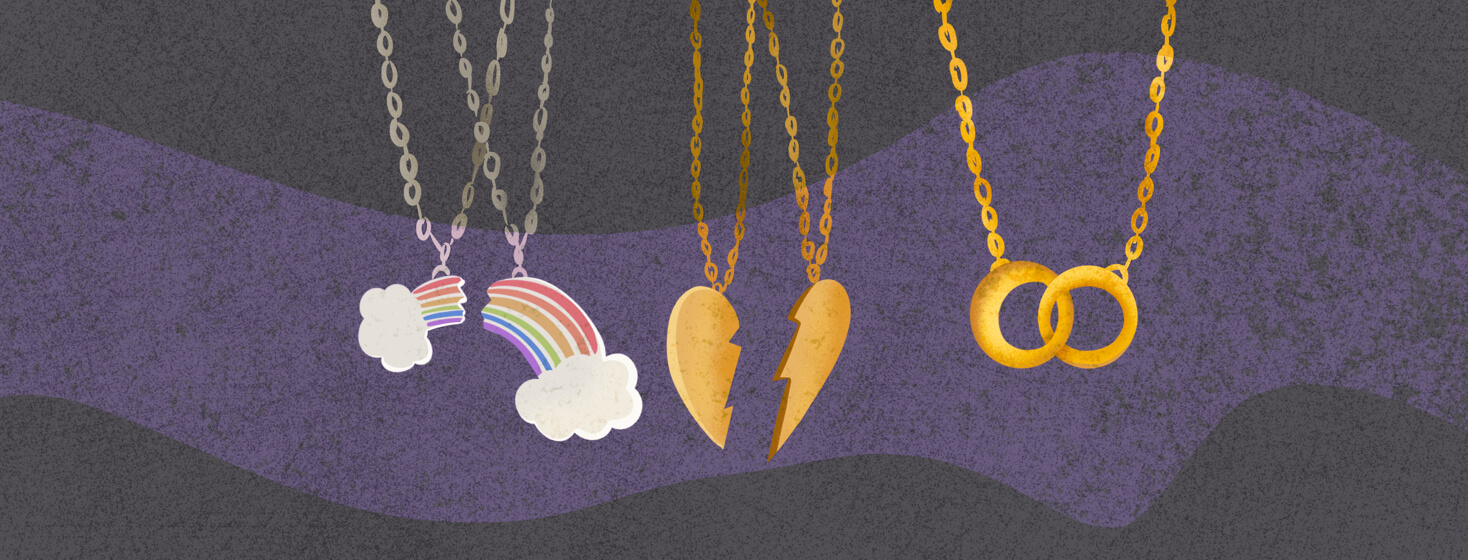Challenging Relationship Dynamics that Accompany Migraine
Life with chronic migraine, or really any chronic pain or emotional/mental health issue, can be challenging enough on its own. Navigating a relationship can bring a lot of positives but also can, at times, add to the challenges.
Navigating guilt
Guilt is an enormous and insidious issue for those of us who live with chronic pain conditions. Regardless of the fact that migraine is no fault of our own, we are often saddled with feelings that we have let people down, come up short; and, failed our loved ones.
A lose-lose predicament
Our reality frequently means we must cancel plans, miss work, important events, fun vacations, and date nights. If we do choose to try to ignore a migraine attack and follow through with plans due to desire or pressure, symptoms can often worsen for two reasons. First, we aren’t caring for our condition (which generally needs quiet stillness). Second, being observed or judged while we’re ill by friends, coworkers, family members can increase stress and related symptoms. Conversely, if we cancel, we may feel we are being judged for being lazy for simply responding to an attack, and ultimately this can increase overall feelings of guilt. It can end up feeling like either way we respond, we can’t win.
Feeling a power imbalance
We often end up feeling indebted to the people in our lives. Again, even though the condition is not our fault, we feel as if we have inconvenienced coworkers, friends, family members, and loved ones. A resulting dynamic can develop in which the chronic migraineur loses their sense of power and the volume of our voice. We lower our standards and end up just being grateful the people in our lives have stuck around. Perhaps we aren’t able to work and become financially dependent on our partner. Or we feel indebted to a coworker for repeatedly standing in for us.
Feeling grateful but wanting to be respected
We fear these key relationships may fall apart when we are not at our strongest. While we are filled with gratitude for the help we are given, we end up being conflicted about not being able to return the favor. In some cases, relationship dynamics can shift, and we may begin to feel less than. Unfortunately, many of us get to the point that we allow ourselves to be treated differently and unequally, or for our needs not to be met, simply because we have a condition we never asked for and didn’t cause.
We can both be grateful for the assistance and support others give to us, but we must remember that having migraine should not diminish the fact that we deserve to be respected and treated well.
Doing our best
Despite the pain and the awful nature of what migraine brings and takes, all we can ultimately do is make the best of what we have in this life. Migraine limits a lot of what we can do, but it ultimately doesn’t limit our ability to express love, appreciation, and gratitude for those around us without apology. There’s a difference between saying “Thank you, I’m so grateful for your presence in my life, and I love you,” and saying, “Thank you for always helping me, I’m so sorry that I’m sick all of the time.” It’s important that we keep reminding ourselves that migraine is not our fault.
Stronger than we think
And underneath it all, if everything were to fall apart, we have to strive to believe that while migraines may have made our lives a mess, the condition has also shown us how resilient and strong we are. Every time we have fallen, we have gotten back up. If we have to rebuild and start over, we can. Remembering that fact, from time to time, can help us stand up a little straighter and get the volume back in our voice.
Do you find it challenging to navigate relationships with coworkers, friends, family, and loved ones due to migraine? Tell us about it in the comment section below so we can learn from you.

Join the conversation